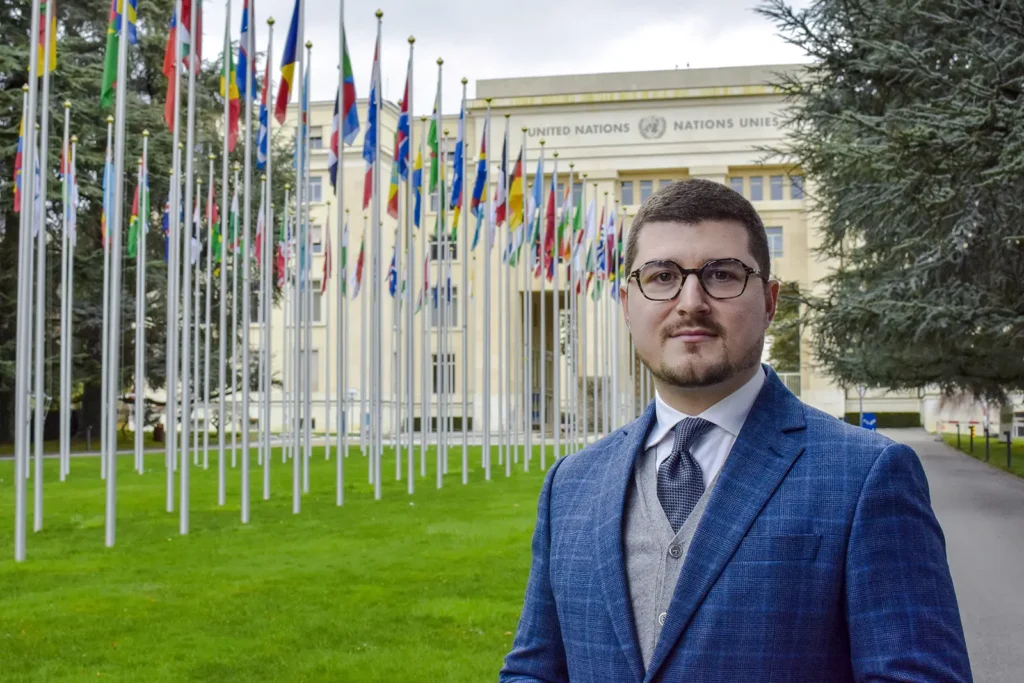- Updated negotiating text for legally binding agreement requires states to cooperate in “preventing” misinformation and disinformation
- As final “two-week negotiating marathon” starts today, ADF International advocates for the removal of language detrimental to free speech

GENEVA (18 March 2024) – Member States resume negotiations today at the World Health Organization on the final draft of the Pandemic Agreement. The previous draft of the legally binding text received worldwide criticism for potentially enabling government crackdowns on free speech in the name of pandemic prevention, preparedness, and response.
If adopted in its current form, the Pandemic Agreement would obligate parties to “cooperate, in accordance with national laws, in preventing misinformation and disinformation”, granting individual states the discretion to define which information fits within these categories, and how far they could go in censoring alleged mis- or disinformation.
The final text is anticipated to be adopted in May and would serve as a critical tool for combating future pandemic threats.
“The revised negotiating text for the WHO Pandemic Agreement continues to misrepresent the human right to freedom of expression as a threat to public health. States have a duty to guarantee access to transparent, timely, and accurate information, especially during health emergencies. This, however, does not grant governments a license to censor lawful speech under the pretext of shielding the public from information arbitrarily labeled as ‘misinformation’ or ‘disinformation’, warns Giorgio Mazzoli, Director of UN Advocacy with ADF International.
“The revised negotiating text for the WHO Pandemic Agreement continues to misrepresent the human right to freedom of expression as a threat to public health“
- Giorgio Mazzoli, Director of UN Advocacy with ADF International.
Treaty will serve as a blueprint for future pandemics
While the updated draft of the Pandemic Agreement retains nebulous and undefined language on mis- and disinformation, it has removed the mandate for states to “manage” so-called “infodemics”. The term was loosely defined as including, inter alia, “too much information” during a disease outbreak causing “confusion” as well as “mistrust” in health authorities, irrespective of the information’s accuracy.
Human rights advocates have welcomed this revision, but emphasize that more must be done to align the provisions of the WHO Pandemic Agreement with global legal standards protecting freedom of expression.
“Freedom of expression, including the right to seek and receive information, is essential to ensure scrutiny and accountability over critical public health decisions. Lacking free access to information, people are unable to assess the lawfulness and effectiveness of the actions undertaken by authorities,” continued Mazzoli.
“If adopted in its present form, the WHO Pandemic Agreement would set a dangerously low standard of regard for freedom of expression. Any government could refer to its obligations under the treaty to unduly restrict free speech in the name of preventing alleged misinformation or disinformation among the population”, he added.
Next steps: final negotiations and adoption
The current updated text will serve as the basis for negotiations scheduled for 18-28 March 2024. Negotiations on this revised draft are expected to result in a consensus text, whose final adoption is anticipated to take place at the World Health Assembly at its 77th Session in May 2024.
Considering its importance and binding nature, the process for negotiating the text – which began in March 2023 – has been exceptionally fast compared to typical timelines. However, the slower-than-expected pace of negotiations has prompted some Member States to question the feasibility of adopting the agreement in May. Once adopted, the Pandemic Agreement will enter into force after it has been ratified by forty countries.
“Everyone agrees that life is precious and that states have an interest in protecting public health. But some of the most grave and systematic human rights abuses of the last century unfolded during public emergencies and we must be vigilant to protect hard-won rights – especially in times of crisis. When it comes to vague and undefined concepts such as “misinformation” or “disinformation”, the currently proposed cure is far worse than the disease,” Mazzoli concluded.


